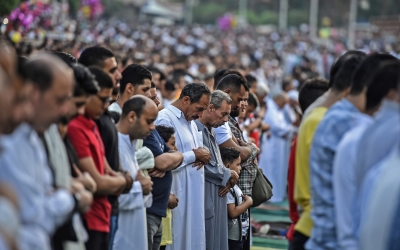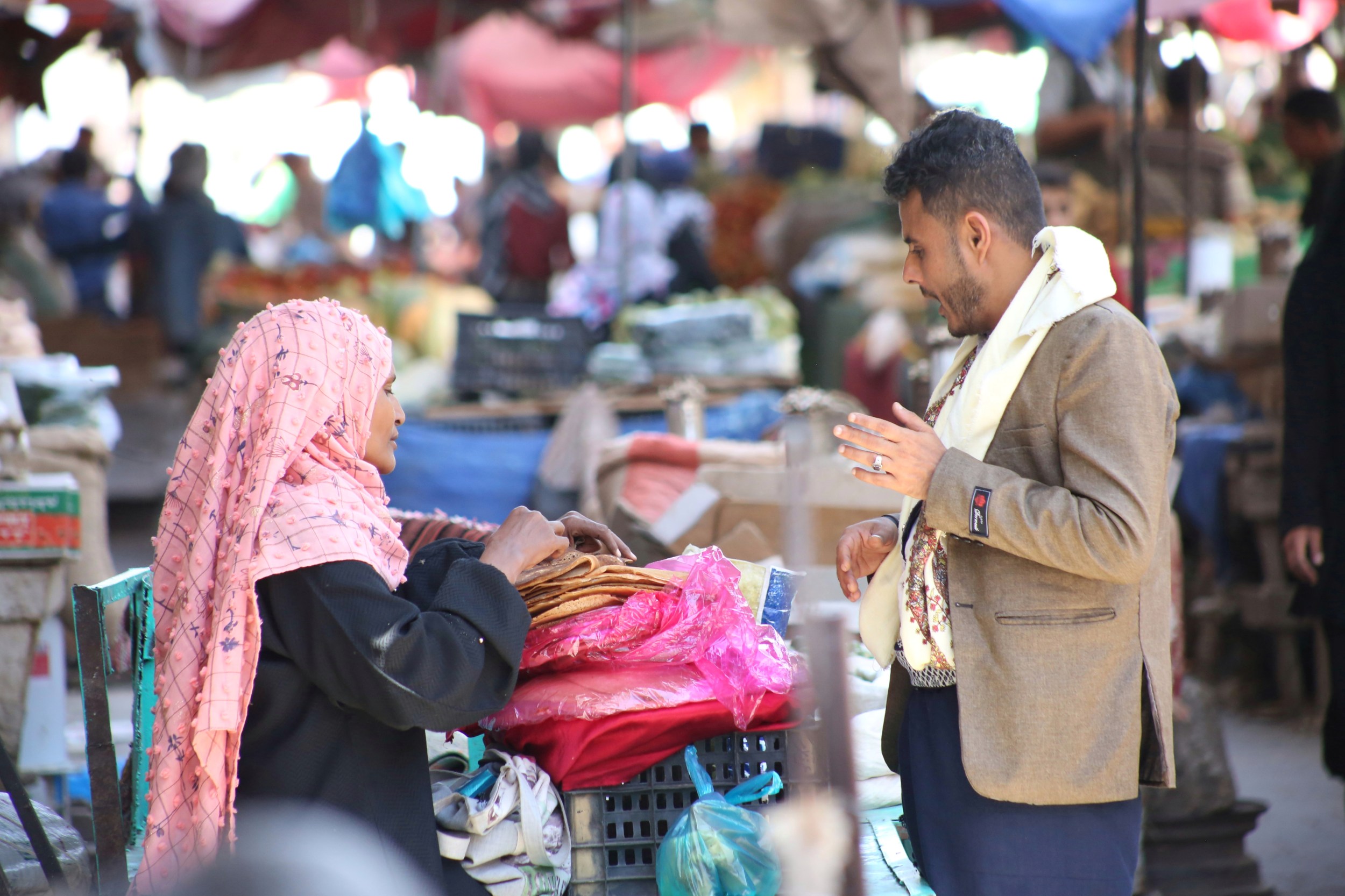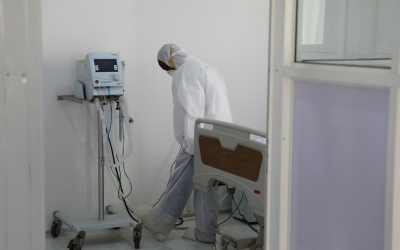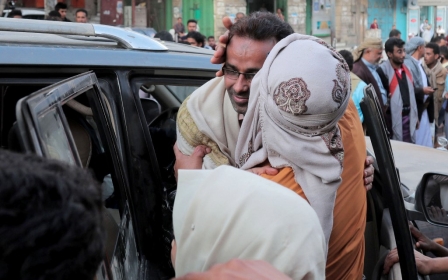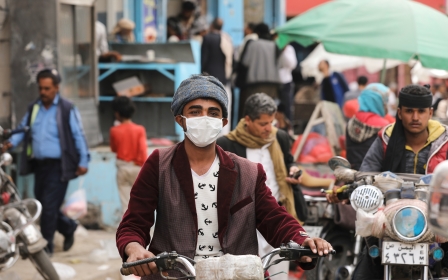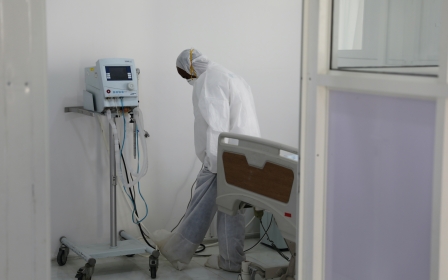Coronavirus: Spared by the pandemic, Yemenis enjoy an unexpectedly normal Ramadan
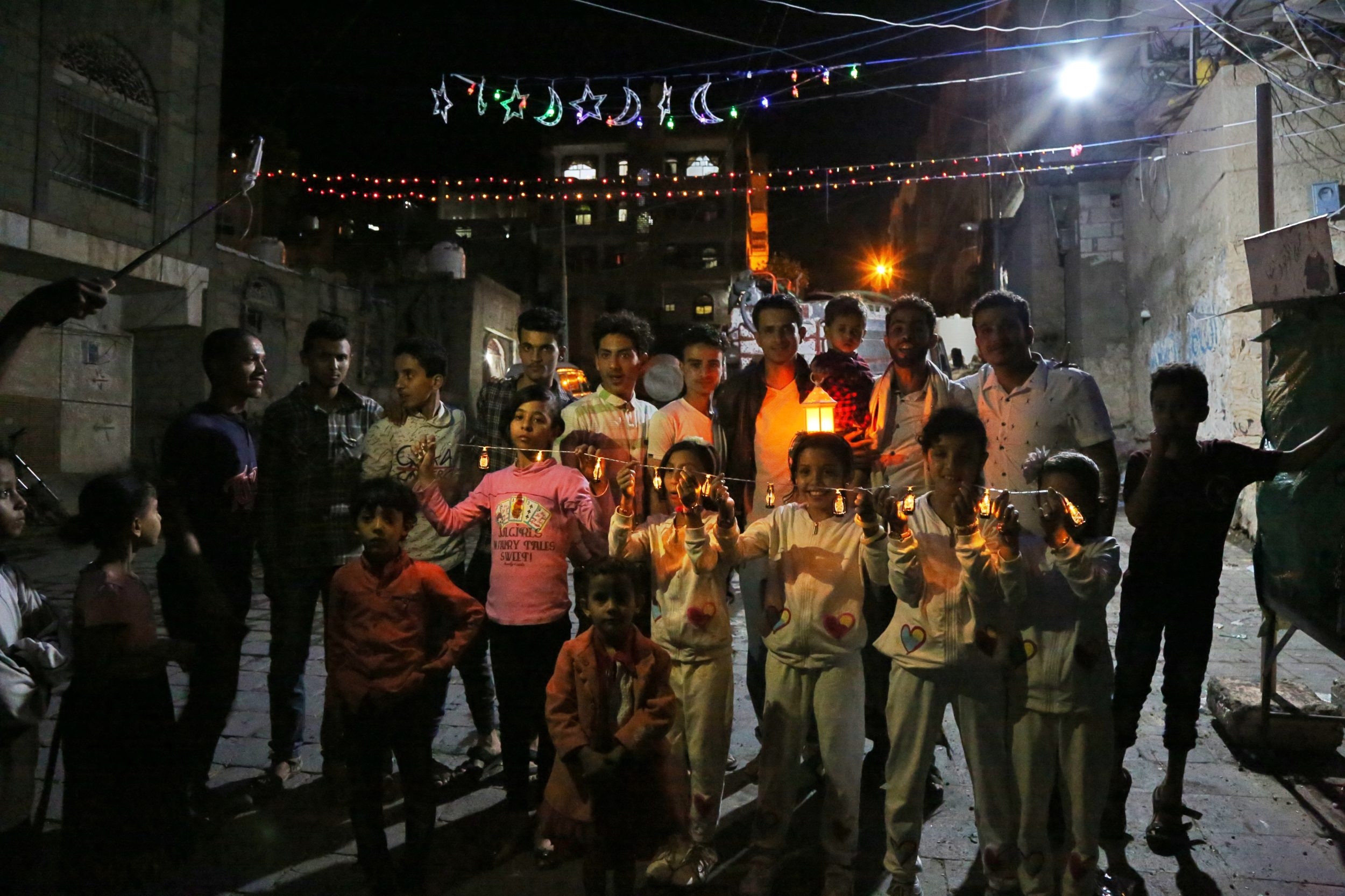
Across the world, Muslims this year find themselves unable to celebrate the holy month of Ramadan as usual, as mosques have been closed in most countries amid the threat of the Covid-19 pandemic.
As states have largely implemented social distancing and confinement orders to slow the spread of the virus, public spaces, including places of worship, have been closed.
New MEE newsletter: Jerusalem Dispatch
Sign up to get the latest insights and analysis on Israel-Palestine, alongside Turkey Unpacked and other MEE newsletters
In Yemen, authorities reported one confirmed case of coronavirus in Hadhramout on 10 April - but the patient has reportedly since recovered, officially leaving Yemen coronavirus-free for the time being.
As a result, Yemen has become somewhat of a rarity during the pandemic, as many people in the country have marked the first few days of Ramadan - which began on Friday - as usual.
“During the last five years, Yemen has suffered and the whole world was watching our suffering on television,” Dhafer Murad, a shopkeeper in his 50s in the capital Sanaa, told Middle East Eye.
“But today the opposite is happening; we have adapted to the suffering and we watch as the whole world suffers from coronavirus.”
Celebrating Ramadan
Murad said residents of the capital have gone shopping in overcrowded markets and prayed in mosques as always during the first few days of Ramadan.
“I go to the markets to buy items and almost all markets are overcrowded, I go to pray in the mosque and many people are there and as usual we have our Iftar in groups in the mosque,” Murad added, referring to the meal marking the end of each daily fast.
Yemenis have always held communal Iftars in mosques, providing meals for free for those in need, as charitable giving is a central part of Ramadan.
“Praise God, while life has changed for the worst in the whole world and they can’t enjoy Ramadan, we are practicing our normal life,” Murad added. “Even the income for my shop is better than in previous years.”
Walid Abdulhameed, 35, told MEE that he spent the first night of Ramadan in the street celebrating, then went to a friend’s house to play cards - an evening of simple pleasures now unthinkable for many.
“On the first night I celebrated Ramadan with my children and friends in the street, and during the day I took my children and went to buy Ramadan sweets and food from the market,” he said.
“All people, not just children, are happy to celebrate Ramadan as this holy month makes us forget our suffering and enjoy good days.”
Abdulhameed stated that authorities had lifted the restrictions on the southwestern city of Taiz, as there have been no other confirmed coronavirus cases in Yemen besides the one in Hadhramout.
“There were some precautionary measures against the coronavirus taken by the authorities, including closing mosques on Fridays, but then that was lifted and we resumed our regular life,” he told MEE.
“No one enters Yemen nowadays and there are no cases in Yemen, so I think there is no need for authorities to impose any restrictions,” he added. “As soon as there are cases, immediately people will take precautionary measures themselves.”
For Abdulhameed, this year’s Ramadan is the best in Taiz since a Saudi-led coalition began a military offensive against Houthi rebels in 2015.
“During the last five years, there have been battles during Ramadan and we did not enjoy (the holiday) to the maximum but this year there are no ongoing battles and we are celebrating it as much as we can.”
Abdulhameed, who is an employee in a private company, has tried to flee Yemen and the war, but the cost of travel has been far too expensive to be able to escape.
“I tried to enter Saudi Arabia but I could not pay for a visa and I dare not to enter with smugglers, so I did not leave Yemen,” he explained. “I was unhappy to be staying in Yemen… but today I’m happy to spend Ramadan with my family as friends (who emigrated to) Saudi Arabia are confined at home.”
‘This is the worst Ramadan in my life and I rue the day that I decided to enter Saudi Arabia’
- Ahmed, Yemeni exiled in Saudi Arabia
Ahmed*, 38, fled Yemen for Saudi Arabia in 2016. The Yemeni national told MEE he used to enjoy Ramadan in the kingdom, but this year everything has changed.
“Ramadan used to be good in Saudi Arabia, and each year I would go to Mecca or Medina to visit the grave of our Prophet Muhammad,” he said.
“But this year, I am spending Ramadan at home and we cannot even go to mosques as coronavirus threatens us in Saudi Arabia.”
The worst problem for Ahmed is that he lost his job as a daily labourer and cannot send any more remittances to his family in Yemen. Instead, he finds himself in the unexpected position of possibly having to ask his relatives back home to send him some money.
“This is the worst Ramadan in my life and I rue the day that I decided to enter Saudi Arabia,” he said. “I hope to return to Yemen these days, but it is out of my hands.”
Precautionary measures
The World Health Organisation (WHO) declared Covid-19 a global pandemic on 11 March. With many countries across the globe struggling to contain the virus, an outbreak in a war-torn country like Yemen would be devastating.
The WHO and other international humanitarian organisations have been raising awareness of Covid-19 in Yemen, asking people to avoid overcrowded places and to maintain enough distance between people not residing in the same household.
‘Covid-19 can hit other provinces at any time, so people should take precautions’
- Riyadh al-Hammadi, doctor
However, most Yemenis have not heeded such advice, deeming that the novel coronavirus is not currently a threat in the country.
“Even those who adhered to the advice of the organisations and the health ministry have stopped taking precautionary measures as WHO did not record Covid-19 cases in Yemen,” Riyadh al-Hammadi, a doctor in Taiz, told MEE.
Hammadi warned that if the disease hit Yemen suddenly, it would spread in a dramatic way, as the country’s health system is deeply strained after years of war.
“Covid-19 can hit other provinces at any time, so people should take precautions into consideration,” he said. “We can enjoy Ramadan in our homes, but unfortunately most Yemenis are not aware of the danger of Covid-19.”
Murad, the shopkeeper in Sanaa, believes there is little to no chance of the virus entering Yemen precisely because of the conflict.
“Yemen has been under Saudi siege since 2016 and the Sanaa airport has been closed since then, so how can the coronavirus arrive in Yemen?” he asked. “It is not easy to enter or leave Yemen so I believe that helps protect it from the coronavirus.
“I hope it will not hit Yemen.”
*Name has been changed
Middle East Eye delivers independent and unrivalled coverage and analysis of the Middle East, North Africa and beyond. To learn more about republishing this content and the associated fees, please fill out this form. More about MEE can be found here.


